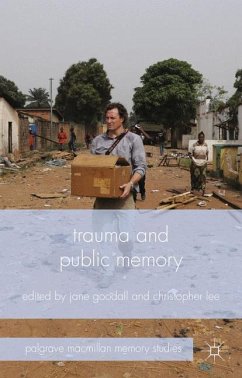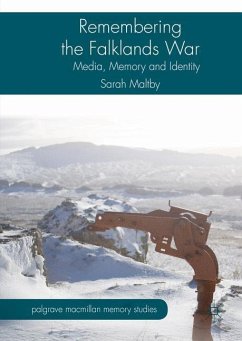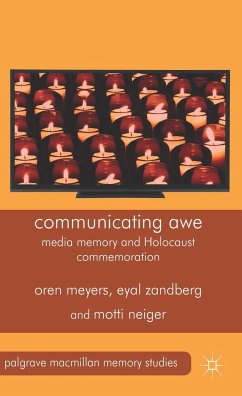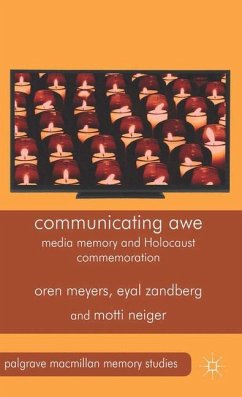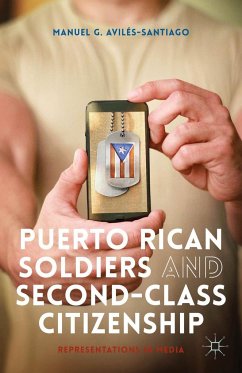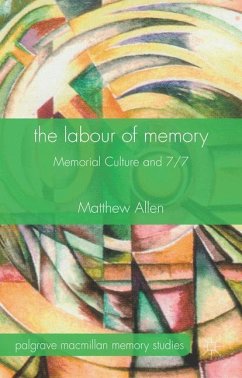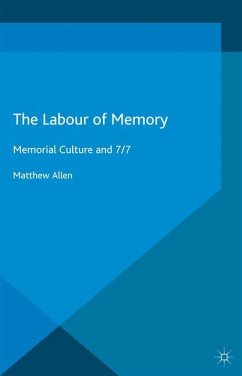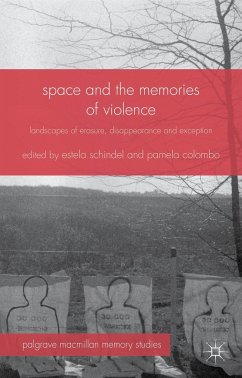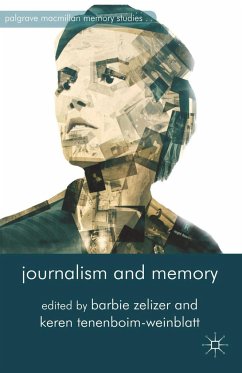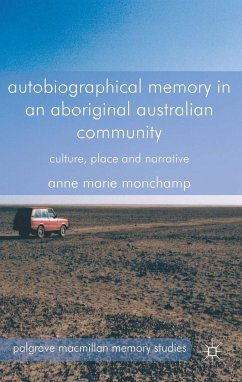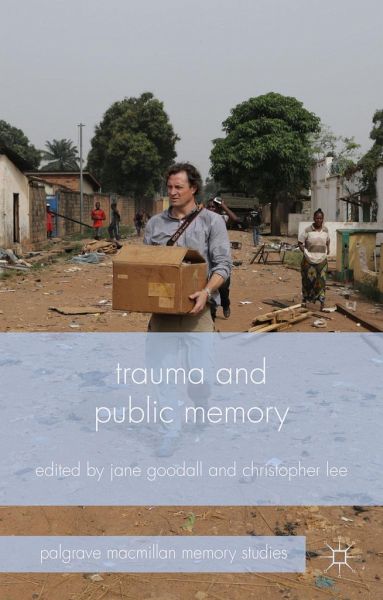
Gebundenes Buch
Trauma and Public Memory
Versandkostenfrei!
Versandfertig in 6-10 Tagen
Weitere Ausgaben:

PAYBACK Punkte
19 °P sammeln!





This collection explores the ways in which traumatic experience becomes a part of public memory. It explores the premise that traumatic events are realities; they happen in the world, not in the fantasy life of individuals or in the narrative frames of our televisions and cinemas.
Ross Anderson, consulting psychologist, Australia Lindsay Barrett, University of Technology, Sydney Victor Emeljanow, University of Newcastle, Australia Norman Fry, Toowoomba Regional Council, Australia Richard Gehrmann, University of Southern Queensland, Australia Jane Goodall, University of Western Sydney, Australia Sue Hewitt, Red Cross, Australia Lawrence Johnson, University of Southern Queensland, Australia Christopher Lee, Griffith University, Australia Therese Lee, Royal Brisbane Hospital, Australia Robert Mason, University of Southern Queensland, Australia Tanya Milligan, Human and Social Response Committee, Australia Geoffrey Parkes, University of Southern Queensland, Australia Wendy Richards, University of Southern Queensland, Australia Lindsay Tuggle, University of Sydney, Australia Mark Willacy, Australian Broadcasting Commission, Australia
Produktdetails
- Palgrave Macmillan Memory Studies
- Verlag: Palgrave Macmillan / Palgrave Macmillan UK / Springer Palgrave Macmillan
- Artikelnr. des Verlages: 978-1-137-40679-8
- 2015 edition
- Seitenzahl: 231
- Erscheinungstermin: 26. Januar 2015
- Englisch
- Abmessung: 218mm x 145mm x 23mm
- Gewicht: 404g
- ISBN-13: 9781137406798
- ISBN-10: 1137406798
- Artikelnr.: 41311978
Herstellerkennzeichnung
Libri GmbH
Europaallee 1
36244 Bad Hersfeld
gpsr@libri.de
'The genesis of this book is improbable: a peaceful regional city on the top of a range is washed by an inland tsunami. What surfaces in the aftermath are these diverse essays on public memory, communal identity and archives of feeling that mesh interviews and interdisciplinary critique in a transnational frame. This collection presents memory studies with a compelling new collection of historical and contemporary essays on trauma and its after-effects.' - Professor Gillian Whitlock FAHA, University of Queensland, Australia
'Trauma and Public Memory breaks the comfortable and distanced mold of media-circumscribed public memory and exposes us to the complex, contradictory, and seemingly ineffable ways in which personal experiences of the traumatic become collective ones. We read of events so challenging as to defy naming, of events so searing that public memory demands a reassuring narrative, the harm obscured. The editors have preserved the freshness and depth of theconversation among authors, and the unusual organizational scheme of coupling overview essays with interviews and concluding 'reflections' conveys the immediacy and vibrancy of the dialogue among contributors. This book deserves a wide readership and promises to shape the conversation for some time.' - Robert D. Hicks, Director, Mütter Museum/Historical Medical Library, Philadelphia, USA
'Trauma and Public Memory breaks the comfortable and distanced mold of media-circumscribed public memory and exposes us to the complex, contradictory, and seemingly ineffable ways in which personal experiences of the traumatic become collective ones. We read of events so challenging as to defy naming, of events so searing that public memory demands a reassuring narrative, the harm obscured. The editors have preserved the freshness and depth of theconversation among authors, and the unusual organizational scheme of coupling overview essays with interviews and concluding 'reflections' conveys the immediacy and vibrancy of the dialogue among contributors. This book deserves a wide readership and promises to shape the conversation for some time.' - Robert D. Hicks, Director, Mütter Museum/Historical Medical Library, Philadelphia, USA
Für dieses Produkt wurde noch keine Bewertung abgegeben. Wir würden uns sehr freuen, wenn du die erste Bewertung schreibst!
Eine Bewertung schreiben
Eine Bewertung schreiben
Andere Kunden interessierten sich für




